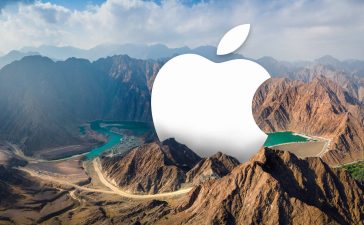Microsoft has long failed in Internet search and browsing. The company has spent plenty of time, money, marketing and development resources to catch up — to no avail.
In search, Google has a stranglehold with 85% of the worldwide search market share in the first quarter of 2023, compared to 9% for Bing. In browsing, Edge fares even worse: it accounts for a 5% market share compared to 64% for Chrome and 20% for Safari. That’s a far cry from 2003, when Internet Explorer had a 95% market share.
You might think that after several decades of trying to dominate search and web browsing, Microsoft would finally throw in the towel. Instead, it is doubling down, making Bing and Edge the center of its universe.
What now leads the company to think this time around it can succeed? Artificial intelligence (AI).
Microsoft believes its chatbot and other AI capabilities will give it a leg up on Google. It’s pushing full speed ahead to integrate AI so deeply into Bing and Edge that they could become the glue that holds together its entire product line. If that succeeds, Microsoft may finally end Google’s dominance in search and browsing.
Bing takes center stage
Microsoft has the lead in AI and it’s rushing to bring more AI into Bing, and connect the search engine to Microsoft 365 (formerly Microsoft Office) and other productivity products.
How fast is it moving? I’ve been covering Microsoft for decades, and I’ve never seen anything like the speed with which new AI capabilities are being launched. In February, the company integrated ChatbotGPT into Bing with much fanfare, but to a carefully limited audience.
The publicity around it was enormous, although much of it was critical. The chatbot told an Associated Press reviewer that he was like Adolph Hitler, saying the reporter is “one of the most evil and worst people in history.” It fell in love with a New York Times reporter and tried to get him to leave his wife.
In years past, Microsoft would have quickly backed off thanks to the bad PR. Not this time. The company put up a few guard rails on its chatbot, but other than that, it was full throttle, ramping up the number of people it allowed to use Bing’s chatbot.
Last week, the US government, alarmed by the potential dangers of AI, summoned the leaders of Microsoft, Google, Open AI (the maker of ChatbotGPT), and AI startup Anthropic to meet with Vice President Kamala Harris to put pressure on them to slow down. President Biden dropped by and warned, “What you’re doing has enormous potential and enormous danger.” Harris doubled down, saying, “The private sector has an ethical, moral and legal responsibility to ensure the safety and security of their products.”
Microsoft’s response? It thumbed its nose at the president and vice president. On the day of the meeting, it opened up the Bing chatbot to countless millions, announcing that anyone who wanted to use the Bing chatbot could do it, took off the safety guardrails it had put in to reign in the chatbot, and opened up the chatbot to developers who could tie their products to it. And the company made crystal clear that Bing will be at the center of its universe.
What will that mean in practice? The not-yet-released AI-driven Microsoft Copilot will likely be incorporated into Bing, letting you use Microsoft 365 apps and other Microsoft tools without leaving the search engine. When Copilot launches, according to Microsoft, you won’t even need to use the apps yourself. Just tell Copilot what you want done, point it at the right data, and it will create documents for you.
Here’s how that might work on Bing. Let’s say you’re going to give a presentation about a worldwide product launch of your company’s new line of work-from-home office furniture. You want to create several slides showing the potential market size in various regions around the world, build other slides highlighting the furniture’s design, price points, and benefits compared to competitors, and add still others detailing the product rollout schedule.
At the moment, you’d have to do internet searches to gather information, find other information in your company’s internal networks, organize and summarize the data, then use Excel, Word, and PowerPoint to create the documents, slides and the entire presentation.
In Microsoft’s vision of the future, that clunky process goes away. Simply head to Bing and tell its chatbot the slides you want to create and ask it to create them for you using information it finds on your company network and the internet. It will do research, create your slides, and then build the entire presentation. Yes, you’ll still need to do editing. But if it works as promised – a big “if,” of course – it could be a profound productivity enhancer. It would also dramatically eat into Google’s search dominance, and maybe even let Microsoft take the lead.
There’s no certainty any of this will ever happen. Tech companies almost always promise more than they can deliver – it’s built in their DNA. Still, that’s currently Microsoft’s vision, and whether it works or not, the company is putting Bing at the center of its universe.
Edge also takes center stage
Microsoft is also forging links between Edge, Microsoft 365, and Bing. It envisions its browser and search engine inextricably linked to each other and the rest of the company’s product lineup.
As a first step, Microsoft has added a Bing sidebar to Edge. With it, Bing’s chatbot features are a click away, including chatting with it, asking it to research and write, create art for you, and more.
The sidebar also includes links to other Microsoft products, notably Microsoft 365. Click the Microsoft 365 icon, and you’ll see (and can open) all of your recently used documents inside Bing in online versions of Microsoft 365 apps. You can also launch any Microsoft 365 app online, including Teams, OneNote, and Outlook, in addition to Excel, PowerPoint and Word. There are also separate icons on the sidebar to launch Outlook and OneNote.
Beyond that, when you use Edge, you’ll be able to continue the same chatbot session across all of your devices, including phones, laptops, desktops and tablets. Edge will also keep a history of all your chat sessions. Microsoft is betting that if people use Bing – and other Microsoft products – they’ll want to use Edge as well.
Will it work?
To be sure, it’s a big bet. Will it pay off? Its success depends on whether Microsoft can deliver on its AI promises. It also depends on whether Bing and Edge’s AI capabilities prove to be superior to what Google is working on.
At the moment, Microsoft’s AI tools are far better. But that advantage may not last. And if it doesn’t, Microsoft will once again find itself a second fiddle in search and browsing.
Copyright © 2023 IDG Communications, Inc.












